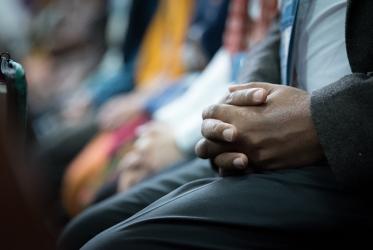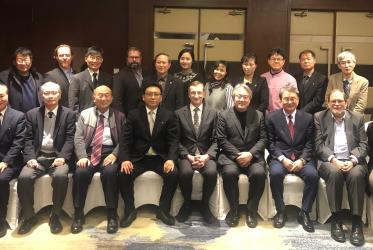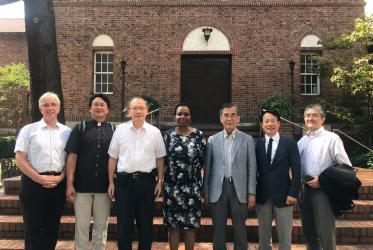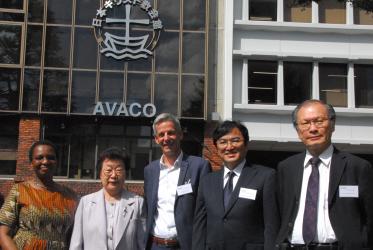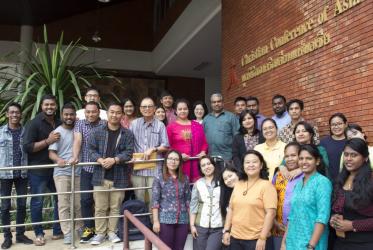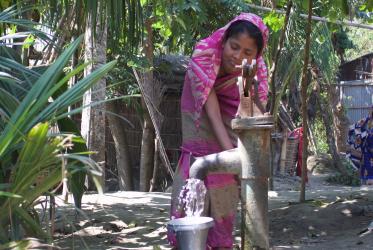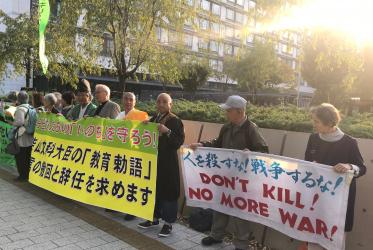Displaying 1 - 20 of 42
WCC offers prayer during Japanese peace conference
11 March 2021
New student body at Bossey Ecumenical Institute “a source of joy”
14 September 2020
New WCC “Eco Ambassadors” pledge to protect our ecology
06 January 2020
Religious leaders keep vision of peace alive on Korean Peninsula
10 December 2019
In Japan, spirit of koinonia deepens
26 September 2019
In Japan, theologians reflect on today’s global manifestations of racism
18 September 2019
In Japan, indigenous and ecumenical youth call for action against racism
12 September 2019
Peace is common denominator of all major religions
05 March 2019
WCC pilgrimage turns its eyes to Asia
04 March 2019
Paving the way for ecumenical studies, learning English in Bossey
24 September 2018

